#dodd-frank
Link
#dodd-frank#donald trump#signature bank#silicon valley bank#Economic Growth Regulatory Relief and Consumer Protection Act
7 notes
·
View notes
Text
“The Great Taking”: How They Plan to Own It All
The derivatives bubble is often estimated to exceed one quadrillion dollars (a quadrillion is 1,000 trillion). The entire GDP of the world is estimated at $105 trillion, or 10% of one quadrillion; and the collective wealth of the world is an estimated $360 trillion. Clearly, there is not enough collateral anywhere to satisfy all the derivative claims. The majority of derivatives now involve…
View On WordPress
#bail-in#BANKS BIG BANKS BIG TECH DERIVATIVES ECONOMY FED FINANCE MONEY MONEY SILICON VALLEY SVB THE FED#Dodd-Frank#DTC#DTCC#Ellen Brown#public banking
0 notes
Text
Banking Nerves And Dodd-Frank
The Dodd-Frank Wall Street Reform and Consumer Protection Act was enacted in response to the 2008 financial crisis, with the aim of promoting stability and accountability in the banking industry. The law introduced a wide range of regulations intended to prevent another financial crisis, including measures to increase transparency, reduce risk-taking, and protect consumers.
One of the key ways that Dodd-Frank affects banking stability is by requiring banks to hold more capital as a cushion against potential losses. The law introduced new capital requirements for banks, including a minimum leverage ratio and a requirement for banks to hold a higher proportion of their assets in high-quality, easily liquidated assets. These measures help to ensure that banks have sufficient resources to absorb losses in the event of a financial downturn, thereby promoting stability in the banking system.
Dodd-Frank also established the Financial Stability Oversight Council (FSOC), which is charged with identifying and addressing systemic risks to the financial system. The FSOC monitors financial markets and institutions, and has the authority to designate certain companies as "systemically important," which subjects them to increased regulatory oversight.
Another way that Dodd-Frank affects banking stability is by providing for greater regulatory oversight and enforcement. The law created new regulatory bodies, such as the Consumer Financial Protection Bureau (CFPB), which is tasked with protecting consumers from abusive financial practices. Dodd-Frank also gave regulatory agencies greater authority to supervise and enforce regulations, and introduced new measures to promote accountability and transparency in the banking industry.
Yes, Dodd-Frank has been weakened to some extent in the years since it was enacted. While the law was intended to promote stability and accountability in the banking industry, some of its provisions have been rolled back or scaled back in the years since its passage.
One of the most significant changes to Dodd-Frank came in 2018, when Congress passed the Economic Growth, Regulatory Relief, and Consumer Protection Act. This law rolled back several provisions of Dodd-Frank, particularly those that applied to smaller banks and credit unions. The law raised the threshold for banks that are subject to enhanced regulatory oversight, exempting many smaller institutions from certain requirements. It also eased some of the restrictions on banks' ability to engage in certain types of trading and investing activities.
In addition to legislative changes, the Trump administration also took steps to weaken Dodd-Frank through regulatory actions. For example, the administration appointed new leaders to regulatory agencies who were more sympathetic to the banking industry, and these leaders rolled back or delayed several Dodd-Frank regulations. The administration also sought to limit the power of the Consumer Financial Protection Bureau, which was created by Dodd-Frank to protect consumers from abusive financial practices.
Although Dodd-Frank has been weakened in some respects, many of its key provisions remain in place. Banks are still required to hold more capital as a cushion against potential losses, and regulatory agencies still have the authority to monitor and enforce regulations. Nevertheless, the changes to Dodd-Frank have been significant, and some critics argue that they have increased the risk of another financial crisis by reducing regulatory oversight and accountability in the banking industry.
0 notes
Text
Greed, Risk and the Pope
by James Stefanile, ABR, GRI, SRES, QSC, gCertified, REALTOR/Salesperson, Prudential NJ Properties, Montclair, NJ
As if there wasn’t enough to dislike about the banking industry, they’ve done it again!
A major reform in the recent Dodd-Frank financial overhaul law (Dodd–Frank Wall Street Reform and Consumer Protection Act) was risk retention for the banks for mortgages they grant. It’s called…

View On WordPress
#APOSTOLIC EXHORTATION EVANGELII GAUDIUM#Dodd-Frank#Millenials#Pope Francis#QM#QRM#qualified mortgages#qualified residential mortgages#Risk Retention#skin in the game
0 notes
Text
How to screw up a whistleblower law
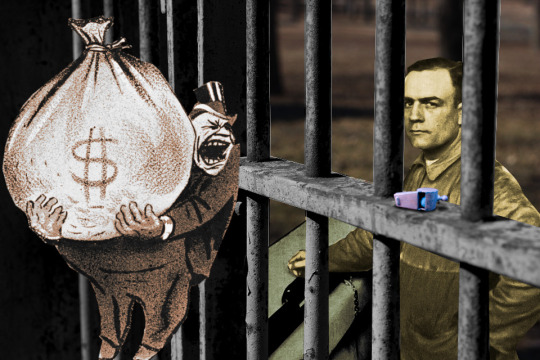
I'm touring my new, nationally bestselling novel The Bezzle! Catch me THIS WEDNESDAY (Apr 17) in CHICAGO, then Torino (Apr 21) Marin County (Apr 27), Winnipeg (May 2), Calgary (May 3), Vancouver (May 4), and beyond!

Corporate crime is notoriously underpoliced and underprosecuted. Mostly, that's because we just choose not to do anything about it. American corporations commit crimes at 20X the rate of real humans, and their crimes are far worse than any crime committed by a human, but they are almost never prosecuted:
https://pluralistic.net/2021/10/12/no-criminals-no-crimes/#get-out-of-jail-free-card
We can't even bear to utter the words "corporate crime": instead, we deploy a whole raft of euphemisms like "risk and compliance," and that ole fave, the trusty "white-collar crime":
https://pluralistic.net/2021/12/07/solar-panel-for-a-sex-machine/#a-single-proposition
The Biden DOJ promised it would be different, and they weren't kidding. The DOJ's antitrust division is kicking ass, doing more than the division has done in generations, really swinging for the fences:
https://pluralistic.net/2024/03/22/reality-distortion-field/#three-trillion-here-three-trillion-there-pretty-soon-youre-talking-real-money
Main Justice – the rest of the DOJ – promised that it would do the same. Deputy AG Lisa Monaco promised an end to those bullshit "deferred prosecution agreements" that let corporate America literally get away with murder. She promised to prosecute companies and individual executives. She promised a lot:
https://pluralistic.net/2024/03/22/reality-distortion-field/#three-trillion-here-three-trillion-there-pretty-soon-youre-talking-real-money
Was she serious? Well, it's not looking good. Monaco's number two gnuy, Benjamin Mizer, has a storied career – working for giant corporations, getting them off the hook when they commit eye-watering crimes:
https://prospect.org/justice/2024-04-09-reform-groups-lack-of-corporate-prosecutions-doj/
Biden's DOJ is arguably more tolerant of corporate crime than even Trump's Main Justice. In 2021, the DOJ brought just 90 cases – the worst year in a quarter-century. 2022's number was 99, and 2023 saw 119. Trump's DOJ did better than any of those numbers in two out of four years. And back in 2000, Justice was bringing more than 300 corporate criminal prosecutions.
Deputy AG Monaco just announced a new whistleblower bounty program: cash money for ratting out your crooked asshole co-worker or boss. Whistleblower bounties are among the most effective and cheapest way to bring criminal prosecutions against corporations. If you're a terrified underling who can't afford to lose your job after narcing out your boss, the bounty can outweigh the risk of industry-wide blacklisting. And if you're a crooked co-conspirator thinking about turning rat on your fellow criminal, the bounty can tempt you into solving the Prisoner's Dilemma in a way that sees the crime prosecuted.
So a new whistleblower bounty program is good. We like 'em. What's not to like?
Sorry, folks, I've got some bad news:
https://www.corporatecrimereporter.com/news/200/stephen-kohn-on-the-justice-department-plan-to-offer-whistleblower-awards/
As the whistleblower lawyer Stephen Kohn points out to Russell Mokhiber of Corporate Crime Reporter, Monaco's whistleblower bounty program has a glaring defect: it excludes "individuals who were involved with the crime." That means that the long-suffering secretary who printed the boss's crime memo and put it in the mail is shit out of luck – as is the CFO who's finally had enough of the CEO's dirty poker.
This is not how other whistleblower reward programs work: the SEC and CFTC whistleblower programs do not exclude people involved with the crime, and for good reason. They want to catch kingpins, not footsoldiers – and the best way to do that is to reward the whistleblower who turns on the boss.
This isn't a new idea! It's in the venerable False Claims Act, an act that signed into law by President Abraham Lincoln. As Kohn says, making "accomplices" eligible to participate in whistleblower rewards is how you get people like his client, who relayed a bribe on behalf of his boss, to come forward. As Lincoln said in 1863, the purpose of a whistleblower law is to entice conspirators to turn on one another. Like Honest Abe said, "it takes a rogue to catch a rogue."
And – as Kohn says – we've designed these programs so that masterminds can't throw their minor lickspittles under the buss and collect a reward: "I know of no case where the person who planned or initiated the fraud under any of the reward laws ever got a dime."
Kohn points out that under Monaco, the DOJ just ignores the rule that afford anonymity to whistleblowers. That's a big omission – the SEC got 18,000 confidential claims in 2023. Those are claims that the DOJ can't afford to miss, given their abysmal, sub-Trump track record on corporate crime prosecutions.

If you'd like an essay-formatted version of this post to read or share, here's a link to it on pluralistic.net, my surveillance-free, ad-free, tracker-free blog:
https://pluralistic.net/2024/04/15/whistleblown/#lisa-monaco
153 notes
·
View notes
Photo



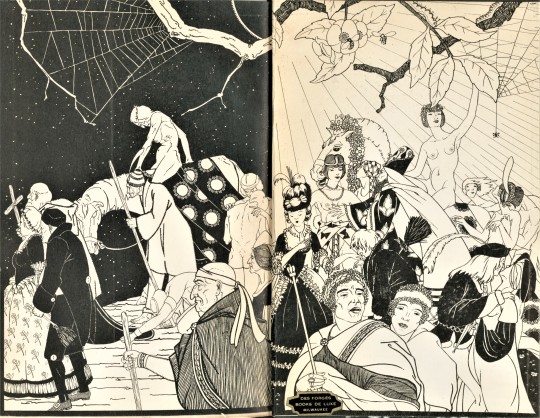
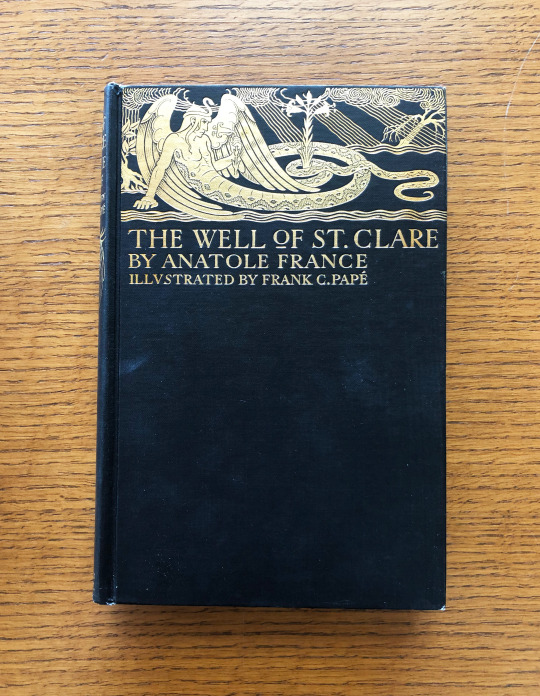


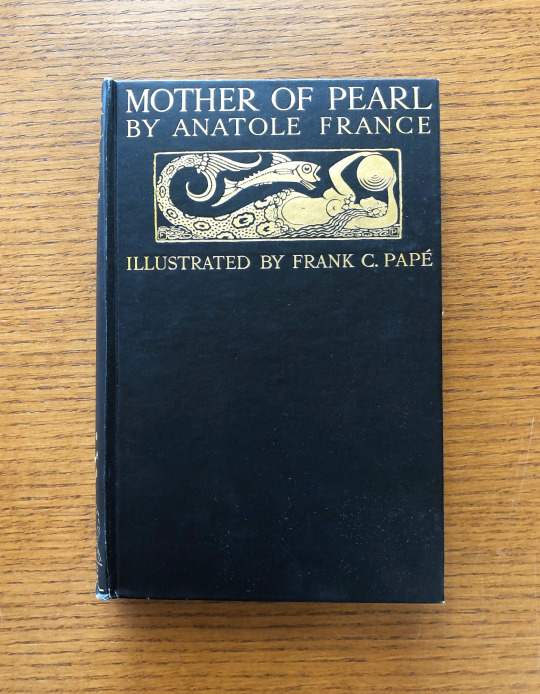


Publishers’ Binding Thursday
These publishers’ bindings were found for me by Teddy while looking for something else in the stacks! They are editions of three works by the ironic French poet, journalist, and author Anatole France, published in 1927, 1928, and 1929 respectively by Dodd, Mead & Co. in New York. The books are Golden Tales of Anatole France, The Well of Saint Clare, and Mother of Pearl. Here, each book is shown with its endpapers. The endpapers for Golden Tales were designed by the illustrator of the book, L.A. Patterson. The endpapers for The Well of Saint Clare and Mother of Pearl were designed by the illustrator Frank C. Papé, who also provided illustrations throughout both volumes.
Each binding is stamped in gold with a different design befitting the theme of the book. The spine of each book similarly features a unique design, the best of which is undoubtedly the impish juggling cherub on Mother of Pearl, though the winged man with a snake for a hat on The Well of Saint Clare is a pretty close second.
View more Publishers’ Binding Thursday posts.
-- Alice, Special Collections Department Manager
#Publishers' Binding Thursday#Anatole France#Dodd Mead and Company#Golden Tales of Anatole France#The Well of Saint Clare#Mother of Pearl#L.A. Patterson#Frank C. Papé#illustrations#endpapers#illustrated endpapers#publishers' bindings#cherubs#snake hats
78 notes
·
View notes
Photo

#Justice Society of America#Spectre#Johnny Thunder#Thunderbolt#Sandman (Wesley Dodds)#Doctor Fate#Jesse Quick#Hourman#Wonder Woman#Green Lantern (Alan Scott)#Power Girl#Hawkman#Flash (Jay Garrick)#Atom#Gary Frank#team shots
159 notes
·
View notes
Text
Kinktober Suggestions Are Now Open!

Hey Guys!
I am thinking about doing Kinktober this year and I have put together some prompts.
If you would like to assign a character I write for to any of these prompts just drop the prompt and the name into my ASKS.
1. Hate Sex - Peter Stone
2. Anal - Greg ‘Mouse’ Gerwitz/Antonio Dawson
3. Toys - Leslie Shay
4. Jealousy - Brian 'Otis' Zvonecek
5. Public Sex - Brian 'Otis' Zvonecek
6. Mirror - Brian ‘Otis’ Zvonecek
7. Face Sitting - Frank Castle
8. Bondage - Antonio Dawson
9. Blindfolding – Antonio Dawson
10. Tit Fucking - Brian 'Otis' Zvonecek
11. Praise Kink (Giving) - Peter Stone
12. Threesome - Ethan Choi x Connor Rhodes x Reader
13. Face Fucking - Brian 'Otis' Zvonecek
14. Masks/Stranger Sex - Peter Stone
15. Mutual Masturbation - Rodrigo Sanchez
16. Edging - Antonio Dawson
17. Overstimulation - Brian 'Otis' Zvonecek
18. Authority Kink – Will Halstead
19. Choking - Connor Rhodes
20. Spanking - Rodrigo Sanchez
21. Marking – Lipstick or Bites - Sonny Carisi
22. Corruption - Will Halstead
23. Temperature Play - Sean Roman
24. Sexting - Peter Stone
25. Praise Kink (Recieving) - Mike Dodds
26. Double Penetration - Sean Roman
27. Handcuffs - Mike Dodds
28. Pictures – Brian Otis Zvonecek
29. Lingerie /Leather & Lace – Peter Stone
30. Reader!Sub - Will Halstead
31. Dom - Mike Dodds
#kinktober#will halstead#ethan choi#connor rhodes#brian zvonecek#brian otis zvonecek#antonio dawson#sean roman#rodrigo sanchez#donovan rocker#kenny rixton#greg mouse gerwitz#greg gerwitz#jeff clarke#mike dodds#peter stone#jake lockey#steven grant#marc spector#frank castle#bucky barnes#Tim Speedle#erin lindsay#leslie shay#kim burgess
45 notes
·
View notes
Text
What Will Happen When Banks Go Bust? Bank Runs, Bail-Ins and Systemic Risk
Financial podcasts have been featuring ominous headlines lately along the lines of “Your Bank Can Legally Seize Your Money” and “Banks Can STEAL Your Money?! Here’s How!” The reference is to “bail-ins:” the provision under the 2010 Dodd-Frank Act allowing Systemically Important Financial Institutions (SIFIs, basically the biggest banks) to bail in or expropriate their creditors’ money in the…
View On WordPress
#bail-in#bailout#Bank of North Dakota#bank runs#Dodd-Frank#Ellen Brown#FDIC#Federal Reserve#public banking#quantitative easing#systemic risk
0 notes
Text
A fun, eclectic playlist celebrating background, minor, and side characters on Succession.
If you're curious which characters are represented just ask! Not every side character is here, but an effort was made!
Enjoy!
#succession#music#playlist#gerri kellman#stewy hosseini#willa ferreyra#karolina novotney#andrew dodds#marcia roy#frank vernon#colin#the contessa#jess jordan#ewan roy#caroline#rat fucker sam#rava roy#naomi pierce#Spotify#nate sofrelli#Lawrence yee#marianne hirsch#karl muller
17 notes
·
View notes
Text
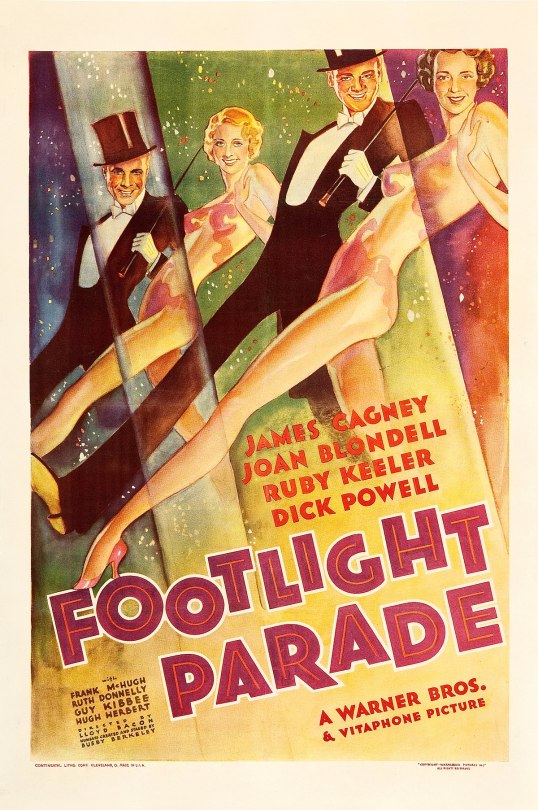
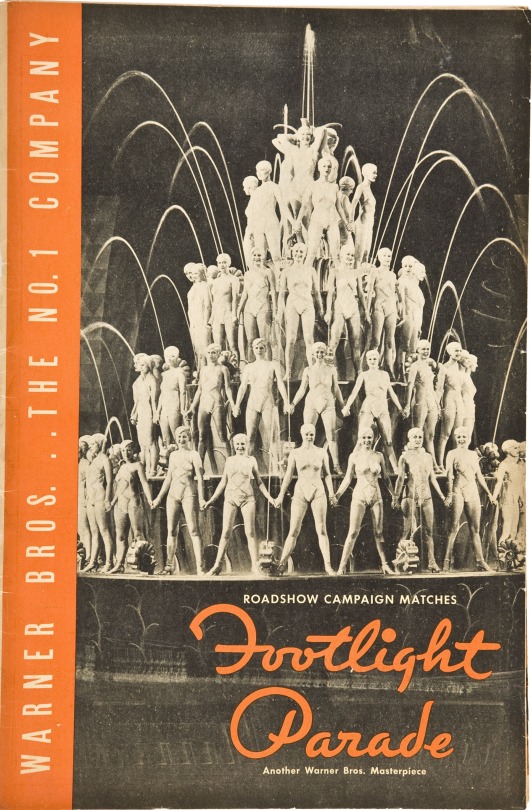
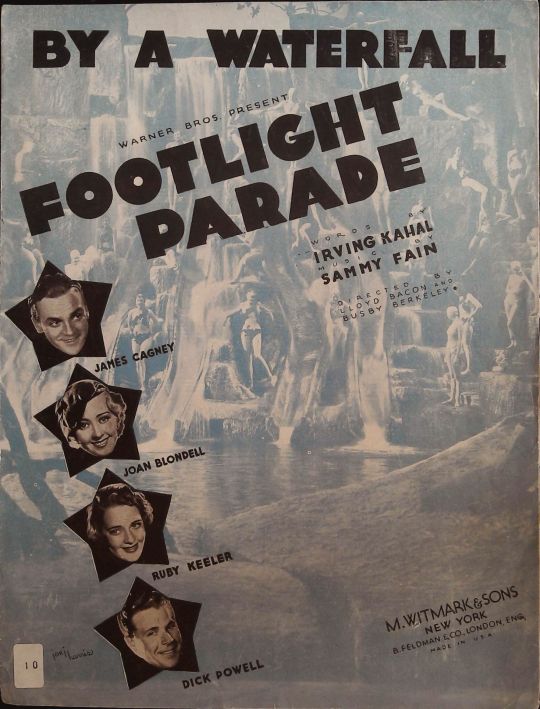






Footlight Parade (1933) Lloyd Bacon
December 4th 2023
#footlight parade#1933#lloyd bacon#james cagney#joan blondell#ruby keeler#dick powell#frank mchugh#claire dodd#guy kibbee#hugh herbert#arthur hohl#ruth donnelly#paul porcasi#busby berkeley#pre-code
4 notes
·
View notes
Video
youtube
DeSantis and GOP Blame "Wokeness" for Bank Crisis After Gutting Dodd-Fra...
And now washing machines. Good flippin’ lord.
#youtube#washing machines#woke#biden#desantis#a closer look#seth meyers#bank crisis#dodd frank#trump#conservatives#gop#culture war#republicans#fox news#wokeness#silicon valley bank#randy johnson#baseball#brian kilmeade#svb#talking points#politics#comedy#news#america#tucker carlson#propaganda#obama#seinfeld
2 notes
·
View notes
Text
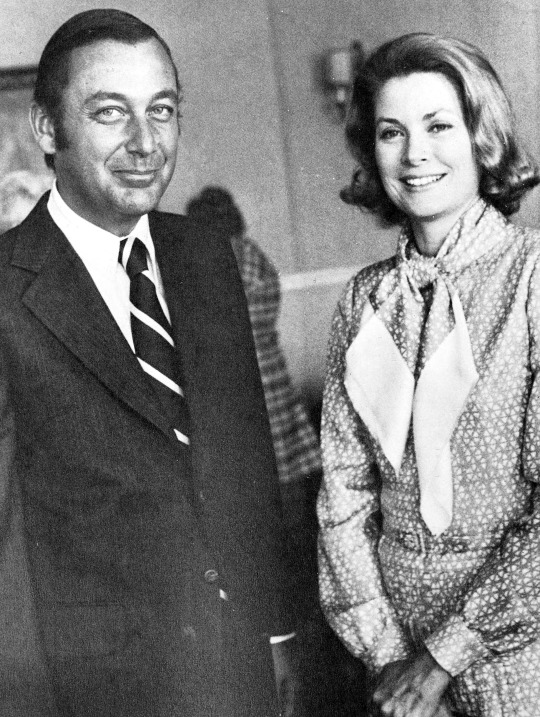
Princess Grace of Monaco with Irish senator Frank Dodd.
6 notes
·
View notes
Text
4 notes
·
View notes
Text
Ik it's probably cringefail liberal of me but it is genuinely fucking depressing when i read legal opinions by people who have abandoned any pretense of doing a good job interpreting the law and are just like federalist society poisoned white collar crime apologists using any excuse they can to eliminate government agencies they don't like
#cringefail liberal bc i would like the conservatives to act to destroy financial regulations WITHIN the bounds of legal debate#where they can do less damage than like. eliminating the prosecutorial function of the SEC and therefore all the teeth of dodd frank#and i always hated law careers bc i thought you couldnt just make shit up! turns out i was incorrect
2 notes
·
View notes